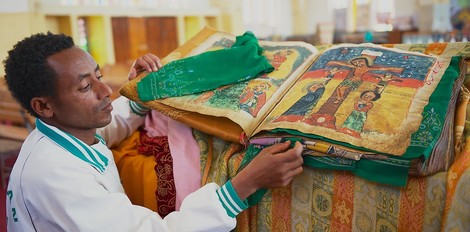Your podcast discovery platform
Curious minds select the most fascinating podcasts from around the world. Discover hand-piqd audio recommendations on your favorite topics.

piqer for: Global finds Technology and society Health and Sanity
Nechama Brodie is a South African journalist and researcher. She is the author of six books, including two critically acclaimed urban histories of Johannesburg and Cape Town. She works as the head of training and research at TRI Facts, part of independent fact-checking organisation Africa Check, and is completing a PhD in data methodology and media studies at the University of the Witwatersrand.
Looting History: Stolen Books, Artefacts And Even Bodies Hide Ethiopia's Rich Past
'Ethiopians wrote books before the British had an alphabet.'
This rather stark line, a damning fact deep in the conclusion of human rights lecturer Yirga Gelaw Woldeyes' article on Ethiopia's looted past, presents a version of Africa that is at odds with the supposed 'dark continent' constructed by European travelers and early historians.
One of the reasons for this, Woldeyes suggests, was that much of the golden history and artefacts of Ethiopia's early, sophisticated culture and practice, were rampantly looted by visiting British and European mercenaries, officials, and even so-called scientists (in those days, theft was pretty much part of 'science'). Lavish manuscripts were carted off to faraway countries where white men appropriated ownership of the texts and proclaimed their mastery of Ethiopian history and religion, without ever having set foot in the land. Not only books were carted away, but people too. Royal heirs who died abroad, and were never repatriated – despite many requests.
This is quite an angry article for the usually more measured and academic terms of The Conversation, but the author is justified in his anger, and the topic feeds into a larger scheme of cultural theft and ownership. The British Museum has made itself custodian of marbles from Greece, bronzes from Benin, etc – artworks that were quite literally pillaged from those countries... While the repeated argument has been made that the museum is the 'best custodian' to preserve such treasures (debatable), it has also meant that when Ethiopians wish to study or simply observe their own rich past, they are unable to do so because their past has been stolen and placed in the custody of strangers – or, they are forced to learn their own history through the books of the same thieves of the past.
